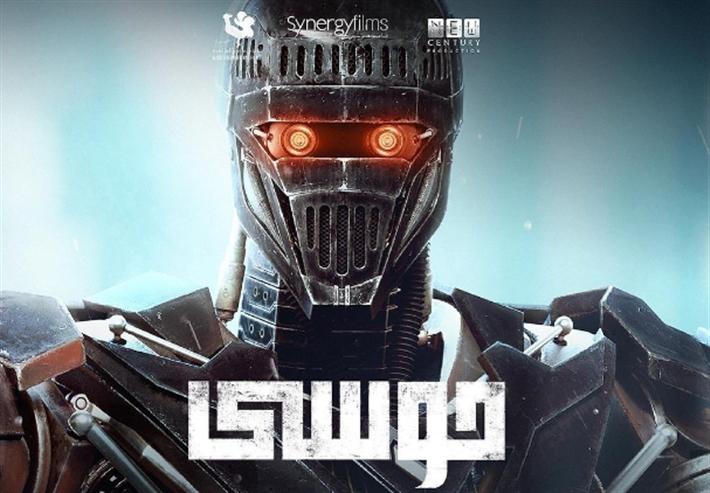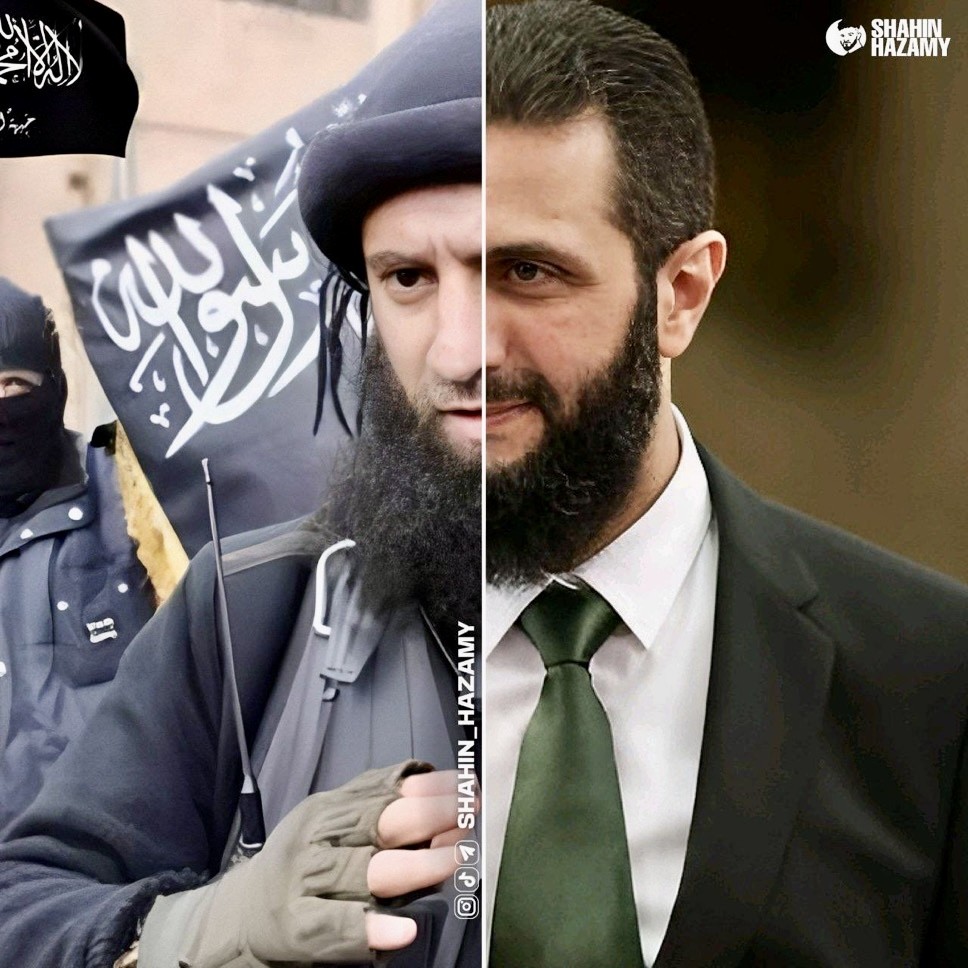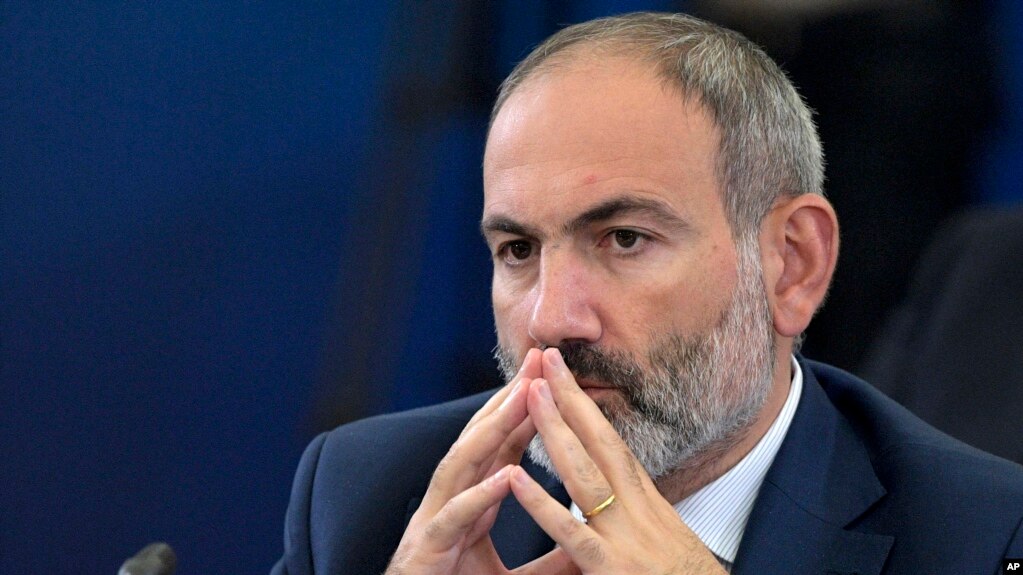
Before I say anything, I have,e to highlight that this movie, Mousa (2021), is to be commended just because MousaMousa (2021) is to be congratulated just for the fact that it’s an Egyptian (and Arabic SF) production, something almost unheard of and inexcusably neglected nowadays in the world of CGI. That by itself is worthy of praise, and it hurts to have to tear this movie down for its many cinematic flaws.
By Emad El-Din Aysha, PhD
What is worse is that flaws notwithstanding, I think the movie can also be faulted on the originality front. The story doesn’t appear to be taken from anywhere else, mind you, since it’s overly Egyptian. Still, I think the premise of a young man fighting for justice with his giant robot is something the moviemakers borrowed from Malaysia vie Mantera (2012).[1] They just can’t stand to be original, ever can they, in the Egyptian moviemaking sector!
Mantera is a very different movie, to be sure, with interstellar alien intervention and secret militaristic conspiracies ruling the world. Still, the basic idea is there: a young protagonist who is an ubergeek picked on at university using a mechanical man to even the score, and a beautiful girl from the same university to boot. (The main difference between the two movies in terms of narrative structure is the presence of a mentor, which was a failing on the part of Mousa if you ask me). But that’s enough of that. Let’s focus on what does happen here and how it all fits together or doesn’t.
Delinquents are Us
Mousa is well produced. The digital camera work is quite good, detailed, and sharp, if a bit lacking in the lighting department, the music is tense, and the computer graphics are pretty believable. (The train scene wasn’t half bad, although I still think the airplane crash scene in COVID-25 was better). The fundamental problem with the movie is that it’s depressing, too depressing for its sound, and sad in a tediously predictable, recognizable way. This comes out through the erstwhile hero, Yehia, played very annoyingly by Kareem Mahmoud Abdel Aziz. He’s an engineering student with a single dad and is picked on by everybody at university, not least his teacher, played by the supercool Jordanian actor Eyad Nassar. (What a stupid move, making the primary antagonist likable than the so-called protagonist?!) The boy is supposed to have ‘problems’ from childhood, but it’s not convincing; he looks like a wuss. Being a geek is one thing, even being non-violent is one thing, but being tedious 24 hours a day even with your friends and confidants and your dad is something else entirely. The character is so one-dimensional he drags the movie down with him. He never seems to enjoy himself or perk up to the point of changing, even when fighting for justice, inventing something, or being around the girl he loves. It translates into a grim movie. There’s no sense of joy anywhere, even when he technically comes out on top.
What a waste. Blame director Peter Mimi for that. Everybody is underacting in the movie, even Asmaa Abul-Yazid – one of the most versatile and talented young actresses – and Muhammad Gumaa, an expert at playing in-depth, charming bad guys. The non-hero, the absolute nonentity that Yehia is, has a sweet old dad played typically by Salah Abdullah. The man gets killed in front of his son’s eyes in an altercation with Muhammad Gumaa’s character, and the boy does nothing. This makes you hate his guts all the more. It’s also annoying because it’s all so to be expected. The whole setup is recognizable, the weakling son who can’t honor the family and the portrayal of the family itself, including how Salah Abdullah is dressed, inexplicably with a cloth cap even when he’s indoors. Another quibble here is the giant house they live in, which is not precisely average here in Egypt, especially on the wages of the father, who is a man who repairs watches for a living. (Old tech vs. new tech, I wonder?) Even the toolshed where Yehia does his inventing is too big to handle. And what would an Egyptian house have a fireplace for? We don’t even have insulation in our walls to keep us warm in the winter.
FRESH START: Asmaa Abul-Yazid. Nothing like the look of the dramatically familiar to get the melodramatically unfamiliar sci-fi ball rolling!
This leaves the movie feeling like it’s a real estate commercial. (With Ahmed Ezz in Ramadan, you felt like you were watching a water heater commercial; the guy single-handedly ruined an excellent TV series, and Mr. Yehia is doing the same thing here). And for some bizarre reason, the house is still in tip-top shape after the fire; the fire engines also get there quickly, which is suspicious enough. After these tragic events, Yehia wants to kill himself, and his father's memory returns to save him. I don’t have a problem with this as such, but he never appears again in the movie, and it doesn’t fit with Yehia’s insistence that his father is still alive. Confused at this, Yehia uses a small robot he’s built – called Mousa or Moses (PBUH) of Pharaoh fame – to get outside to see where the ghost of his father has disappeared, and that’s when it hits him to build a bigger version of the robot to get revenge against the men who killed his dad.
Yehia used the name Mousa because he typically had a brother who died in childbirth called Mousa. If the boy had survived, he would have been his elder brother, somebody to stand up for him. (These guys have never heard of George Orwell. God, how embarrassing!) It’s so clichéd that it’s painful. The robot kills the Muhammad Gumaa character and his gang but a TokTok driver film it on his mobile and shares the video, and that’s when Yehia – under some prodding from his friend (Asmaa Abul-Yazid) – decides to up the ante and fight corrupt elites like gangs that trade in the organs of children. Overnight he becomes a hero and the cops, naturally, take an interest, as do a shadowy group of businessmen who want to capture the machine first before the police so that they can weaponize it themselves. The cops bring in Yehia’s robotics professor, the Eyad above Nassar, and he joins up with the shady business group. Why? Because his son is sick with a hereditary disease and needs to do a costly operation in Europe, the man doesn’t trust local doctors. Boo hoo!!
Like I said, a cavalcade of clichés. If the acting was up to the mark or the movie exciting, I could put up with it. Still, it isn’t. (Asmaa Abul-Yazid is given dreadlocks to make her look more radical, but you don’t see enough of this to notice it from her behavior, and she’s also given too much dark makeup for some strange reason). Anyway, the evil professor finds a way to jam the signal controlling the robot and has the girl Yehia loves kidnapped – she’s the (out of reach) daughter of the shady businessman trying to find Mousa. But Yehia, for once, shows some cunning and works with a hacker friend (played by Ahmed Hatem) to get the girl back without handing over Mousa and blows Mousa up so no one can get at his mechanical secrets. For some strange reason, the hacker blows up the vicinity and has machine guns at his disposal. Miraculously Yehia survives – although there was no reason for him to be in danger, The professor gets away, but the cops find him in the end, and his son has to do a local operation after all. (?!?)
TALENT ON CALL: Eyad Nassar, Mousa the thematic contraption, and Kareem Mahmoud Abdel Aziz, in order of best to worst if you ask me.
Talk about convoluted plotting. It leaves your head spinning, and not in a good way. However, I will say something about it. The movie theatre I was in had a good amount of people in, and quite a few fans on the outside were talking about the movie, so it resonated with many people. They could relate to it and more than just on the level of clichés. Something was going on beneath the surface, my next set of topics.
Play it Safe Sam
The movie's subtext isn’t half bad, if a bit muted. Mousa is characterized by many ‘guest cameos’ of famous actors and characters from other movies. The hacker friend is none other than the ‘fourth pyramid’ from the film of the same name, a whiz kid who had nothing at his disposal but a keyboard – where do all the guns, explosives, and sleeping gas come from? But then again, that’s not the point. The point is to throw in some heroic reference, someone the audience can relate to. Yehia describes himself as like Adham Al-Sharkawi, the famous Robin Hood-type criminal who fought against the English. Making accurate world references is one thing; making fictional references is something else.
Another noticeable face is Ahmed Al-Awadi, playing a cop who pops up in a few scenes, putting a civilized, professional face on the police. Not to mention Amir Qarara, who shows up inexplicably at the end, probably reprising his role as Egypt’s version of Richard Kimble-The Fugitive, a cop on the run and busily helping people when he can’t even help himself.
The story, to its credit, is not structured linearly, told instead in retrospect, allowing the director to hint at things without explicitly stating them. We open to a scene where Yehia is in shackles and has been slapped up. Before we know his job, the professor shows up, and we find him reading through the boy’s file and interrogating him on the good guy cop, bad guy cop routine. Later we learn he’s a professor and that his father was a cop, a policeman who was killed heroically fighting against youthful Islamic fundamentalists in southern Egypt. But his son typically didn’t follow in his footsteps and became a robotics expert instead, hoping to make some money in his lifetime. (Shock, horror, disbelief!) And since you discover, afterward, that he’s working with the shady businessman, you come to realize that your suspicions about police brutality are entirely unfounded. In one scene, Yehia gets questioned by the cops, the very rough and tumble Mahmoud Hafiz, but he never gets slapped up and even gets a human rights lawyer to spy on the proceedings. That’s good to know. All the negative commentary about society then voiced by Yehia’s lady friend is meant to be about the elites running the country into the ground, whether corrupt business people or street gangs, with the cops desperately in need of a classic vigilante superhero to help them police the Arab equivalent of Gotham City or Metropolis.
DIPLOMATIC GUIDANCE: A mentor screenshot from 'Mantera.' Talk about big brothers when they’re called for.
That’s one reason all the young men and women in the movie theatre liked the (pointless) hero and those star appearances, commenting on Amir Qarara and the fourth pyramid verbatim. Yehia quotes his dead father about how we have to stand up to bad people, like the gang that Muhammad Gumaa’s character belongs to, because free speech is a prominent tool against armed thugs and drug peddlers.
Yehia’s professor also wants to ‘silence’ him, standing in for all those heavy-handed school teacher types Egyptians know all too well, yet another reason why the dope of a hero is so damn popular with the fans. The professor is also meant to represent the overbearing older generation, quashing the creativity and youthful exuberance of the young. (That’s easy for them to say, they’ve never had to teach in a country like this; another calculated ploy on the part of the director). As for Yehia’s sweetheart, played by the porcelain Sara Al-Shami, she’s meant to be the upper class, representing the class division that separates middle-class people like Yehia – he is an engineer at the end, not exactly blue-collar – and the upper crust of society. (The shady businessman, her father, is played by Sabri Fawaz, the softy sleazy steel tycoon from Rahim).[2] Again cause for celebration from the white-collar audience in this era of rising class divisions, even among well-off people. (When Yehia is preparing to kill himself, you see him in front of a suitcase full of money, I presume his inheritance). I don’t know about you, but I didn’t feel like celebrating!
BEAUTY PATROL: Shikin Kamal plays Deena, the boy hero’s the posh love interest in ‘Mantera.’ Nothing quite like bridging the class divide, is there?!
So, all in all, it’s a worthy effort but still a mess, and this gets in the way of the overall functioning of the movie as a movie. I have to commend it again as a brave attempt to create a following for SF in this country, but even here, there were problems. The world the story in is our world, not some near-future world. Hence the presence of Mr fourth pyramid. So how can this future world sustain the tech that Yehia needs to build his robot, Mousa? Everything else looks as mundane as it is now. Sure there are mobile phones and things, but everything else is cracked or rusty, not to mention the outdated clocks that Yehia’s father fixes. It’s stretching it there.
It’s a hard, hard movie to like but an easy movie to admire. I honestly can’t make my mind up on it. The most I can say is that it doesn’t need to be seen in the movie theatres but is a step in the right direction. Let’s hope there’s a sequel so Mr. Mimi can walk the rest of the way without tripping and falling on his melodramatic face!!
NOTES:
[1] It could also be that the movie is modeled on Real Steel (2011), to cite a youtube reviewer Mahmoud Ismail.
[2] Rahim comes from Rahma, or mercy if you’re wondering. These businessmen can’t get a break, can they!






